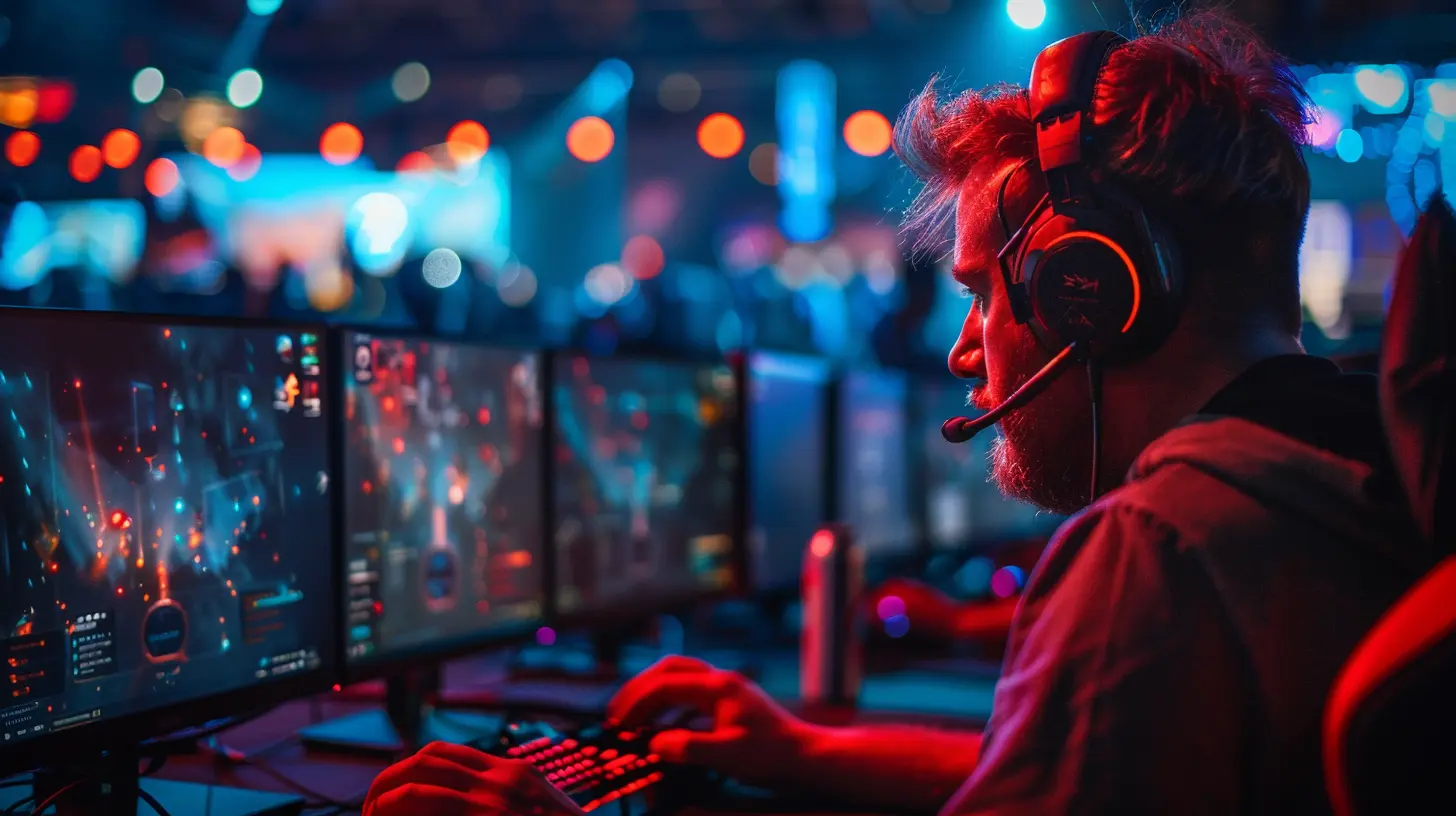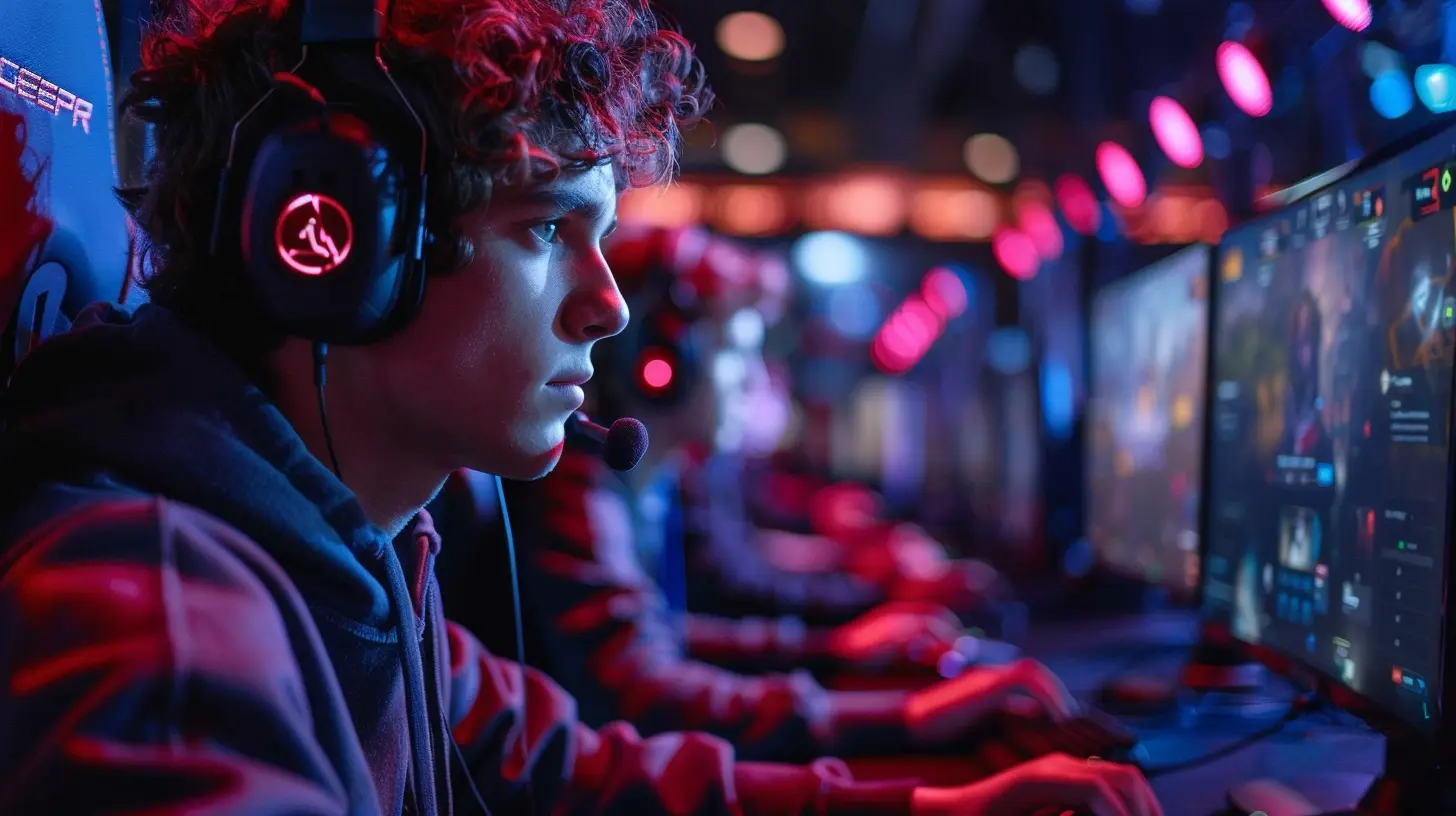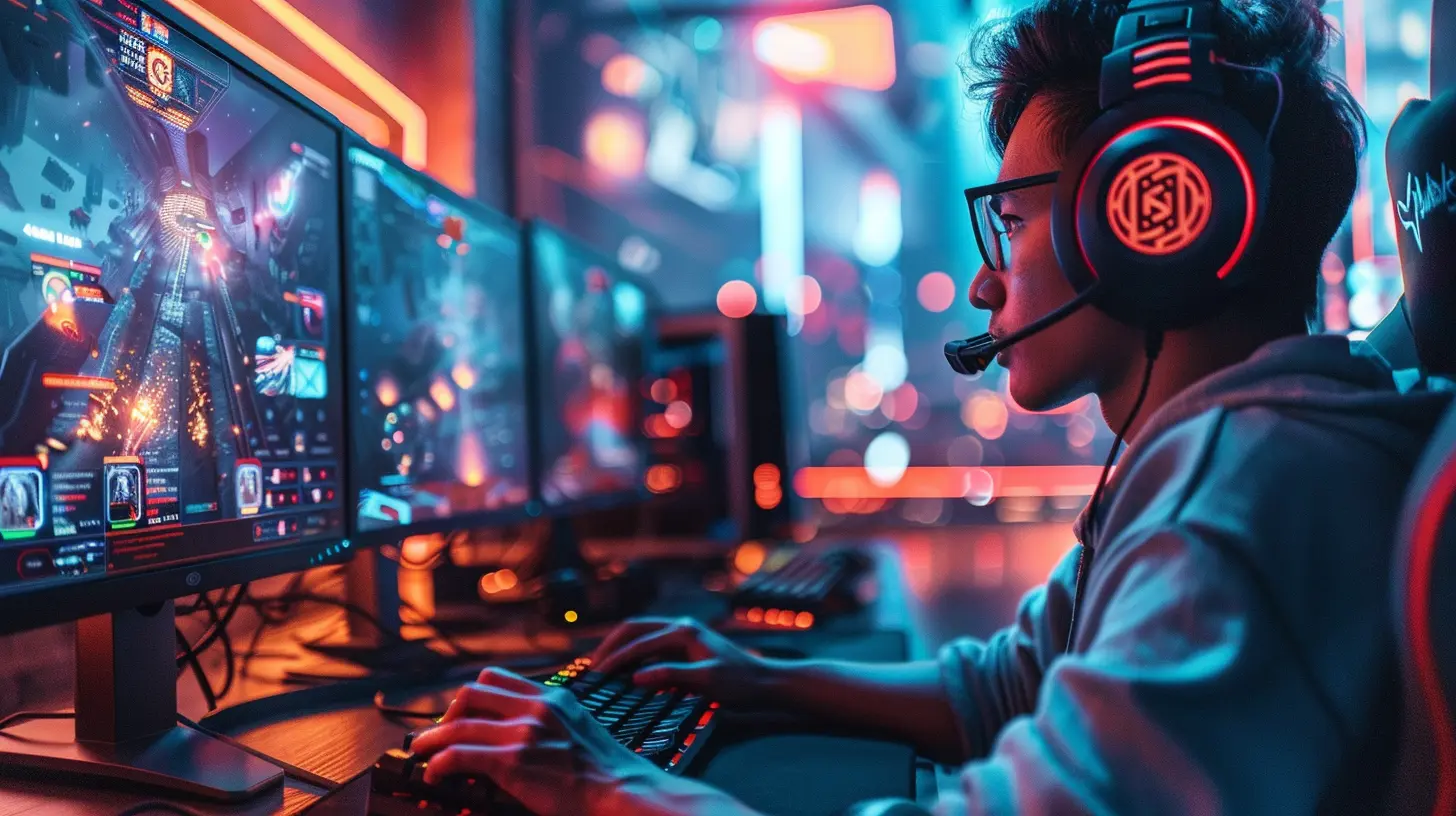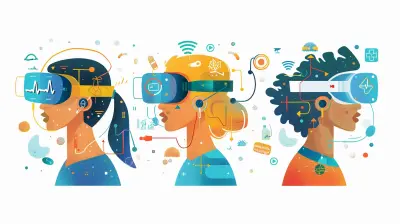How the Metaverse Could Shape the Future of Competitive Gaming
18 August 2025
Competitive gaming has come a long way. What started as casual couch co-op sessions has transformed into multi-million dollar eSports tournaments that attract millions of viewers worldwide. But there's something brewing on the horizon that could take the industry to an entirely new level—the Metaverse.
Imagine a world where gaming isn't just about sitting in front of a screen but about stepping inside the game itself. That’s what the Metaverse promises. And if you're a gamer, you need to buckle up because this new reality is going to redefine competitive gaming as we know it.
The Rise of the Metaverse in Gaming
The Metaverse isn't just a buzzword; it's a digital universe that blends virtual and augmented reality, blockchain, and AI to create fully immersive experiences. For gamers, this means bridging the gap between video games and real life.But how does this impact the world of competitive gaming? Well, let's break it down. 
1. Hyper-Realistic eSports: The Evolution of Immersion
Traditional competitive gaming relies on screens, controllers, and keyboards. The Metaverse? It throws all that out the window. Instead of watching a tournament on Twitch, imagine stepping into a virtual stadium, sitting right next to your favorite players, and even interacting with them.For competitors, this means playing in a fully immersive environment where reflexes, movement, and decision-making feel more real than ever. Virtual Reality (VR) headsets, motion tracking, and haptic feedback suits will make the difference between a pro and an amateur even more pronounced.
👉 Think about it—instead of clicking a mouse to fire a gun in a game like Counter-Strike, you could be physically moving and aiming in a virtual battlefield. That’s next-level intensity. 
2. Breaking Geographic Barriers: Global eSports Without Limits
Right now, if you want to play in a high-stakes gaming tournament, you often have to fly halfway across the world, deal with visas, and adjust to different time zones. The Metaverse eliminates all of that.With fully virtual arenas, players from different continents can compete without leaving their homes. No more expensive travel costs, no more logistical nightmares. This could open doors for countless talented players who might not have had the chance to compete otherwise.
And let’s not forget the audience. Fans could attend matches in VR, cheering on their favorite teams as if they were physically in the same room. Imagine the energy of a packed stadium—but accessible from your living room. 
3. Ownership and Fair Play: Blockchain in Competitive Gaming
One of the biggest problems in eSports today? Cheating and unfair advantages. From aimbots to match-fixing, the industry has its fair share of issues.Enter blockchain technology. Since the Metaverse is expected to be heavily intertwined with blockchain, it could provide secure, verifiable transactions and anti-cheat measures. Player stats, match results, and even in-game purchases could be recorded on an immutable ledger, ensuring transparency and fairness.
Plus, imagine true ownership of in-game assets. With NFTs (non-fungible tokens), players could actually own the skins, weapons, or characters they use in tournaments, rather than just renting them from game companies. This could give birth to a new economy where pro gamers can trade their assets freely.
4. Training Like Never Before: AI-driven Personalized Coaching
Every great athlete has a coach, and gamers are no different. But what if AI could be your coach?In the Metaverse, AI-driven personalized training programs could analyze a player's gaming style, pinpoint weaknesses, and provide real-time feedback. Think of it as having a virtual coach that’s always watching, learning, and helping you improve.
For aspiring competitive gamers, this means faster skill development and smarter gameplay strategies. No need to sift through hours of YouTube tutorials—your AI coach would create tailor-made strategies just for you.
5. A More Inclusive Gaming World
Right now, gaming—especially competitive gaming—can sometimes be a tough scene to break into. Whether it's due to physical disabilities, gender biases, or lack of accessibility, many potential gamers find barriers in their way.The Metaverse has the potential to level the playing field.
- Adaptive VR Controllers and AI Assistance could help gamers with disabilities compete at the highest levels.
- Virtual Avatars allow players to represent themselves however they choose, reducing biases and promoting inclusivity.
- Diverse virtual spaces ensure that everyone—regardless of background—feels welcomed and valued in the gaming world.
This could be a game-changer for competitive gaming, making it more diverse, fair, and welcoming than ever before.
6. Revolutionizing Content Creation in eSports
Let’s face it—competitive gaming isn’t just about playing anymore. It’s also about streaming, content creation, and fan engagement.With the Metaverse, content creators could build virtual studios, host live meet-and-greets, and even create interactive game worlds for their fans.
Instead of watching a Twitch streamer play Fortnite, imagine jumping into the game with them, walking around in their digital world, and interacting in real-time. The engagement potential here is off the charts.
7. The Rise of New eSports Titles Built for the Metaverse
Right now, most eSports games—from League of Legends to Valorant—are built for flat screens. But in the Metaverse, we’ll see an entirely new wave of games designed with VR, AR, and blockchain tech at their core.Imagine competing in an open-world battle arena where you’re physically dodging attacks, feeling the terrain under your feet, and fully immersed in the action. We’re talking about a completely new breed of competitive gaming—one that makes today’s experiences feel like child’s play.
While traditional eSports games will likely still exist, Metaverse-native titles will take over in the long run, pushing the limits of what’s possible.
Challenges the Metaverse Faces in Competitive Gaming
As exciting as all of this sounds, the Metaverse isn’t perfect. There are significant roadblocks that need to be addressed before it can truly redefine competitive gaming:- Hardware Limitations: Not everyone owns a VR headset, motion tracking gear, or high-end PCs capable of supporting Metaverse-level graphics. Accessibility could be a challenge.
- Internet Latency Issues: A fully immersive gaming experience in the Metaverse will require low-latency, high-speed internet—something that’s still not available everywhere.
- Security and Privacy Risks: The more data we feed into virtual environments, the bigger the privacy concerns. Cybersecurity will need to evolve to protect gamers from hacks and breaches.
Despite these hurdles, the momentum behind the Metaverse is undeniable. Tech giants like Meta (formerly Facebook), Microsoft, and Epic Games are pouring billions of dollars into building it. This means it's only a matter of time before these challenges start getting tackled head-on.
Final Thoughts: Are We Ready for the Future?
The Metaverse isn’t just a far-off dream—it's happening right now. And for competitive gaming, this shift could be the biggest revolution yet.From hyper-immersive experiences to global eSports tournaments without borders, from AI-powered coaching to a more inclusive gaming scene, the possibilities are mind-blowing.
Sure, there are challenges to overcome, but one thing's for sure: competitive gaming in the Metaverse will be unlike anything we’ve ever seen before.
So, are you ready to step inside the game? Because the future of eSports is just around the corner, and it’s going to be legendary.
all images in this post were generated using AI tools
Category:
EsportsAuthor:

Michael Robinson
Discussion
rate this article
1 comments
Mercy Monroe
Exciting times ahead! The idea of the Metaverse transforming competitive gaming is fascinating. Just imagine diving into immersive worlds with friends—blurring the lines between reality and gaming. Can't wait to see how this unfolds!
August 26, 2025 at 12:40 PM

Michael Robinson
Thank you! The possibilities are indeed endless, and I’m excited to explore how the Metaverse will revolutionize our gaming experiences. Stay tuned!


